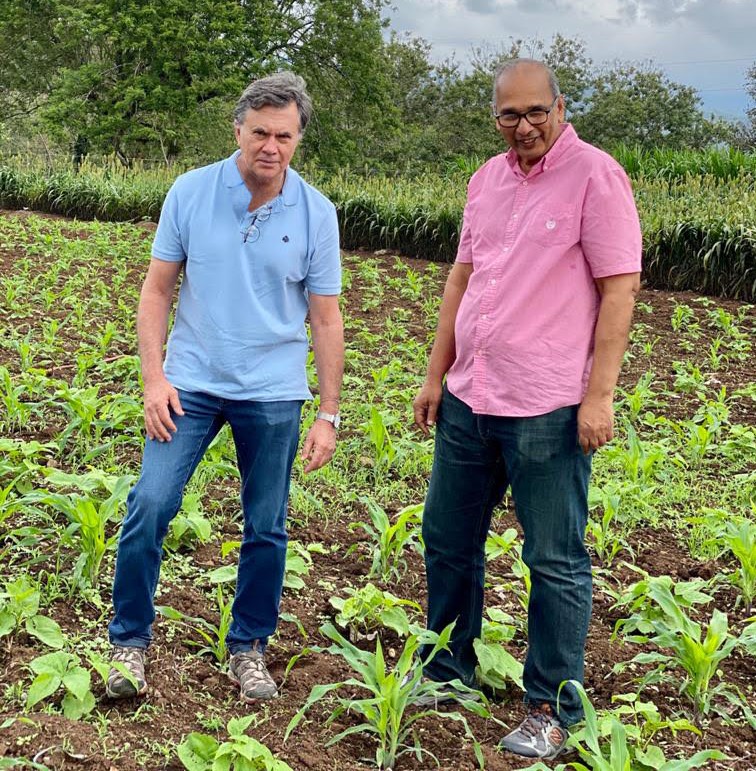Directors general of both institutions visited areas where food is being grown to alleviate effects the health crisis.

San Jose, 12 May 2020 (IICA). – The Inter-American Institute for Cooperation on Agriculture (IICA) and the Tropical Agricultural Research and Higher Education Center (CATIE) have jointly begun to develop a food bank to increase food security among vulnerable populations in Costa Rica.
The leaders of both institutions visited the plots of land that will supply the food bank, where farming models with high productivity standards are being applied.
The project seeks to supply residents of the Costa Rican districts of Turrialba and Vázquez de Coronado with a wide array of fresh food, such as cassava and plantains, given the harsh economic situation they are facing as a result of the Covid-19 pandemic.
“Both institutions are putting into practice the principles of solidarity during these exceptional times,” remarked Manuel Otero, Director General of IICA.
“We are implementing diversified agroforestry production models that will guarantee the production of quality food year-round. At the same time, these plots of land will play an important role in providing thousands of producers with virtual training in the use of innovations that improve resilience and sustainable production,” stated Muhammad Ibrahim, Director General of CATIE.
The food bank initiative was originally proposed by CATIE and has already achieved progress in developing a food production model to be applied on diversified agroforestry plots. The Municipality of Vázquez de Coronado is providing IICA with support within the framework of this initiative.
The food bank initiative is supported by the cooperation activities of the PROCAGICA and AGRO-INNOVA projects, in which the European Union (EU) participates as a partner. The projects will allow for bolstering the food bank initiative at the IICA-CATIE experimental and commercial farm.
The food bank will include white corn, beans, cassava, sweet potato, plantain, pumpkin, banana and highly nutritional fruits like soursop, citrus fruits and guava; as well as some minor species such as poultry and tilapia.
The food production and diversification model will also be replicated in Central American countries where the PROCAGICA and AGRO-INNOVA projects are currently being implemented. This, in turn, will provide small-scale farming families with access to research findings and innovations that can assist them in overcoming issues related to food and nutritional security.
PROCAGICA stands for Central American Program for Integrated Coffee Rust Management, while AGRO-INNOVA refers to the project Innovative Multi-Strata Agroforestry Systems in the Central American Dry Corridor.
More information:
Erick Quirós, IICA Special Affairs Coordinator for the Central Region
Guillermo Deltlefsen, Coordinator of the AGROINNOVA project on behalf of CATIE











